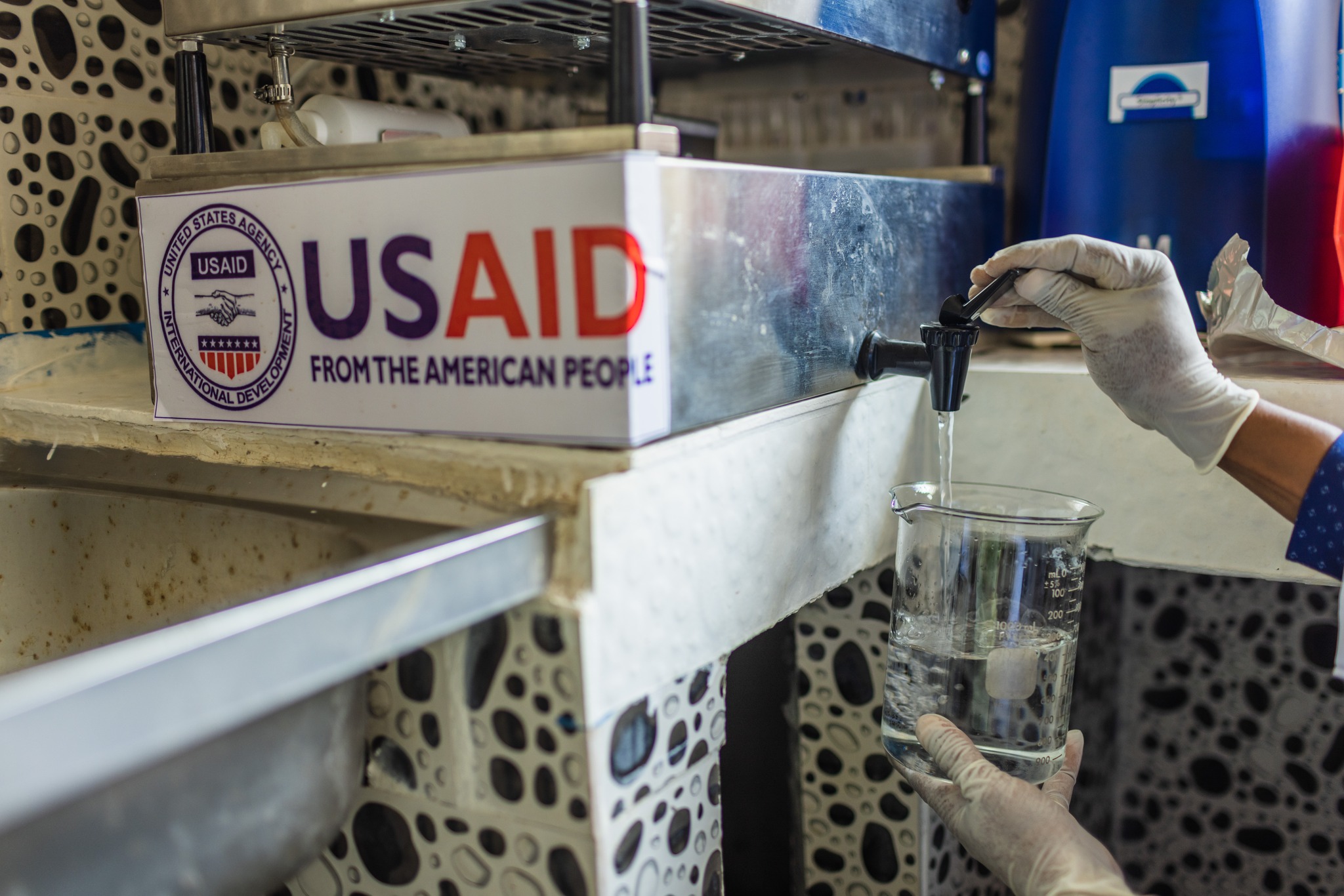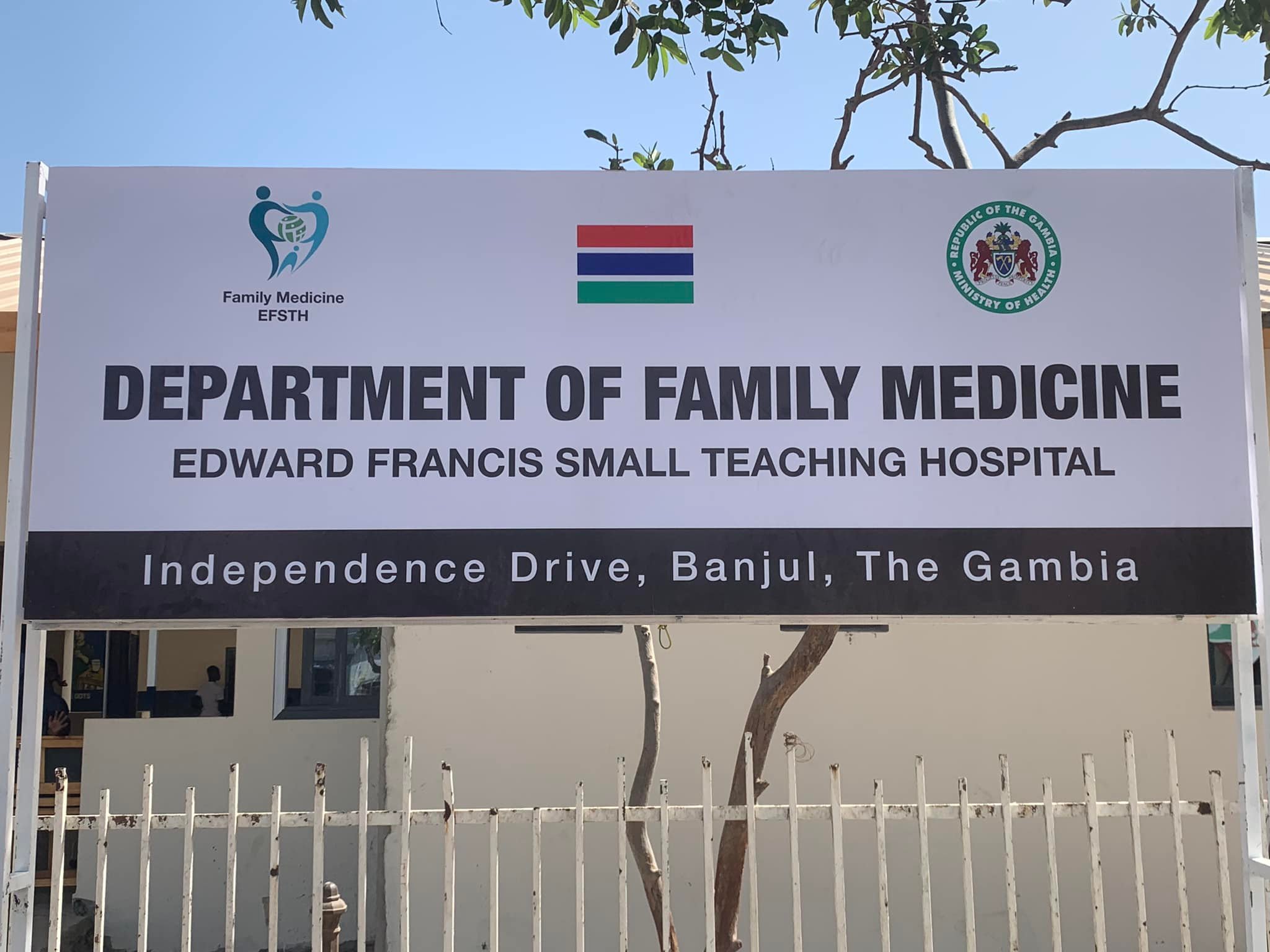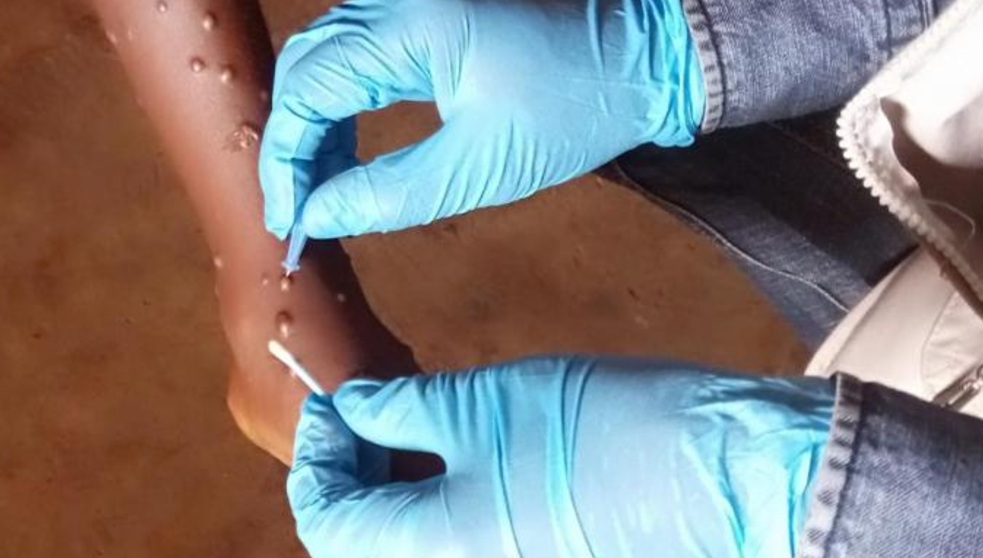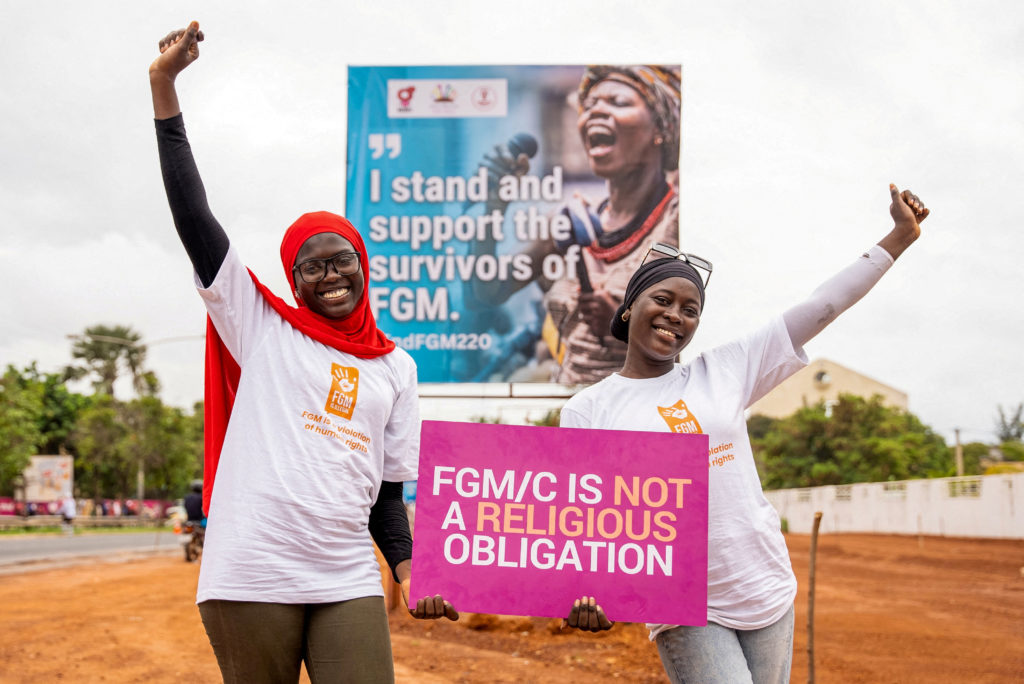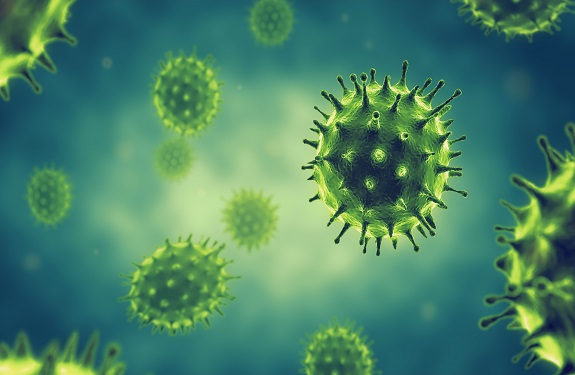
Claim: Hydrogen Peroxide can protect you against COVID-19
Source: Prof. Andrews Seth Ayettey
Verdict: Unproven
Researched by Sani Abdul-Rahman
As the world races to find a cure for the novel coronavirus, many unproven medical treatments and traditional remedies are being promoted on social and traditional media to exploit public anxiety.
Several vulnerable people have died, while others have faced varying consequences including chloroquine and methanol poisoning after trying some of these remedies.
Ghana is battling a second wave of COVID-19 and there is a raging debate about whether hydrogen peroxide could be effective in treating the disease after findings of an observational study led by a former Provost of the College of Health Sciences at the University of Ghana, Prof. Andrews Seth Ayettey recommended it’s use.
“We are, therefore, more emboldened to recommend the use of hydrogen peroxide to protect against COVID-19, alongside the public health protocols and other remedies being actively promoted by government. This ‘traditional’ oral hygiene fluid is inexpensive, readily available, and safe to use in low concentrations,” he stated in an article.
Hydrogen Peroxide
The claim which has been widely published by mainstream media and credible online platforms (here, here, here, here), triggered panic buying and in a joint statement from the Food and Drugs Authority and the Pharmacy Council, it was observed that there was a shortage and also the sale of fake and substandard Hydrogen Peroxide on the market.
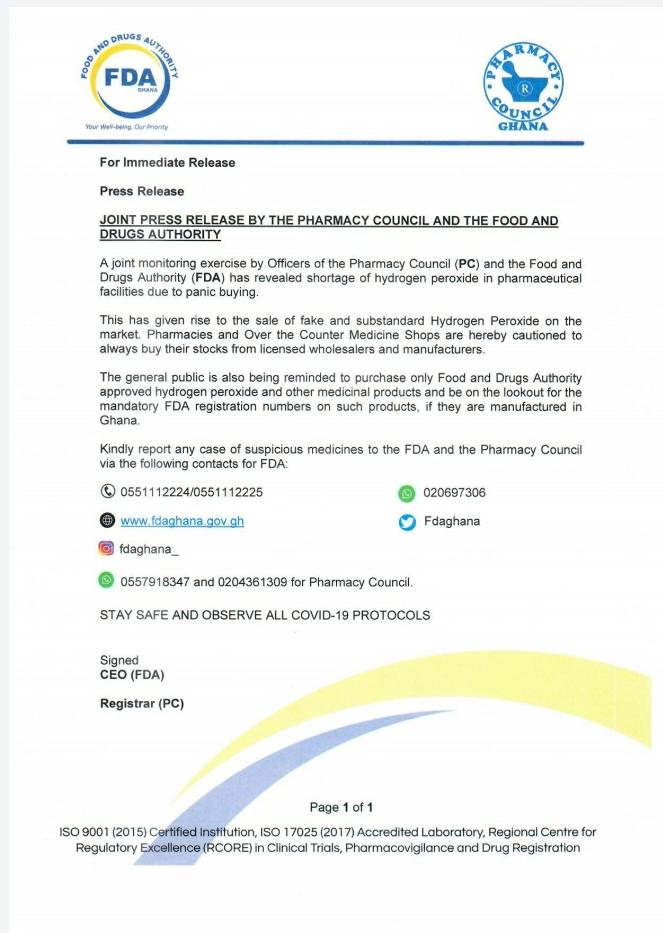
After working with a team of doctors and medical scientists with backgrounds in virology, immunology, biochemistry, oral health, oncology, medicine, and therapeutics, Prof. Ayettey said they discovered that the viruses are inactivated with low concentrations of hydrogen peroxide.
The findings of their observational studies have been published in the British Medical Journal.
“In our on-going observational studies, we have become even more convinced about the efficacy of this solution, realizing that eight frontline nurses in the COVID-19 management team at a District Hospital using hydrogen peroxide had not contracted the disease and had tested negative since May 2020. In comparison, 62 of their colleagues not using peroxide had contracted the disease by end of December 2020,” Prof. Andrews Seth Ayettey stated in a write-up that has been widely reported.
Meanwhile, there are available reports online where some scientists in other parts of the world have touted how hydrogen peroxide and other mouthwashes could play pivotal roles in reducing COVID-19–related complications ( here, here).
Fact-check
The World Health Organization(WHO) says there is no study supporting the claim that hydrogen peroxide could help prevent or cure COVID-19.
“For the time being, there is no evidence that supports that affirmation,” WHO Public Health expert Dr Abdou Salam Gueye said during a WHO Africa region COVID-19 Online Press Briefing on February 18.
According to the WHO, it will however support further studies on any coronavirus drug candidate once initial scientific data shows its effectiveness: “….if there is reasonable reason to believe that one product is effective against coronavirus, we are ready to support them for study.”
The Ghana Medical Association (GMA) has in a statement also cautioned the public against the use of hydrogen peroxide to supposedly prevent or treat COVID-19.
“Presently, Hydrogen Peroxide has not been approved, authorized or recommended by the Food and Drugs Authority (FDA) (Ghana), Ghana Health Service (GHS), Ministry of Health (MoH), World Health Organization or any other reputable international drug and health regulatory body for the prevention or treatment of COVID-19,” the GMA statement partly said.
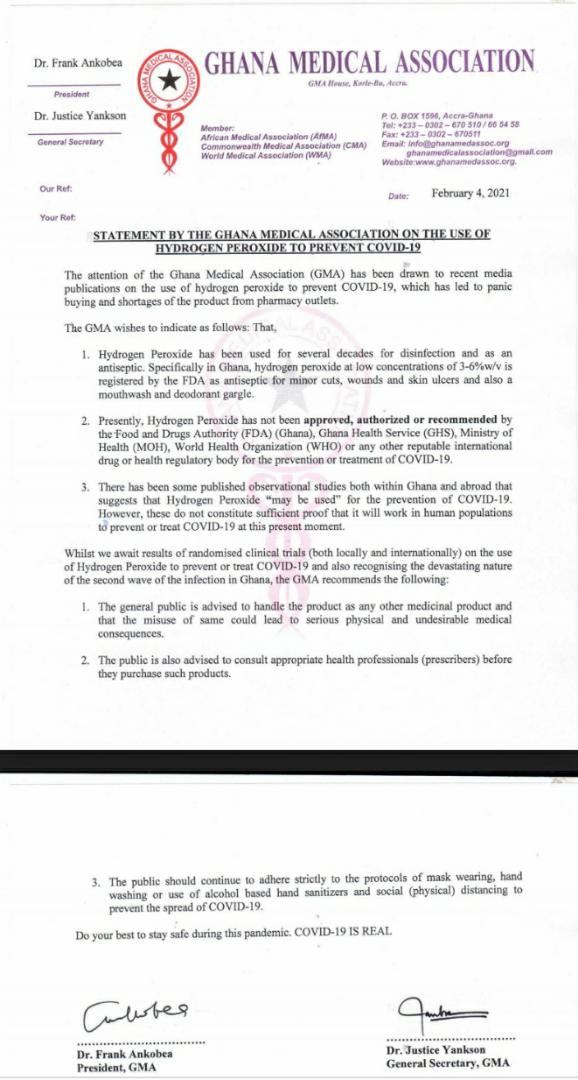
The Director of Public Health at the Ghana Health Service (GHS), Dr Asiedu Bekoe, says the health agency requires additional evidence before it could accept the claim about the effectiveness of Hydrogen Peroxide in treating COVID-19.
Verdict
The claim that Hydrogen Peroxide provides immediate protection against the coronavirus is unproven.





